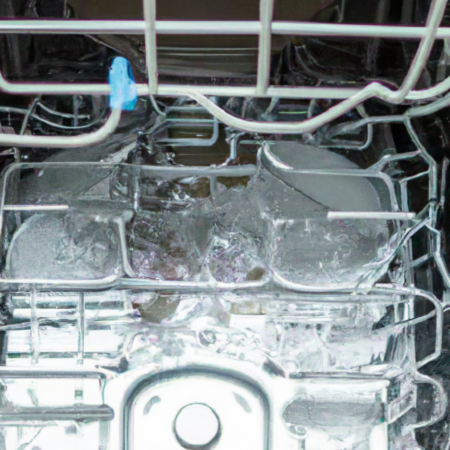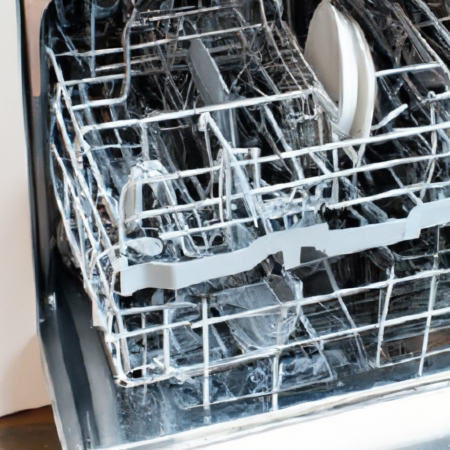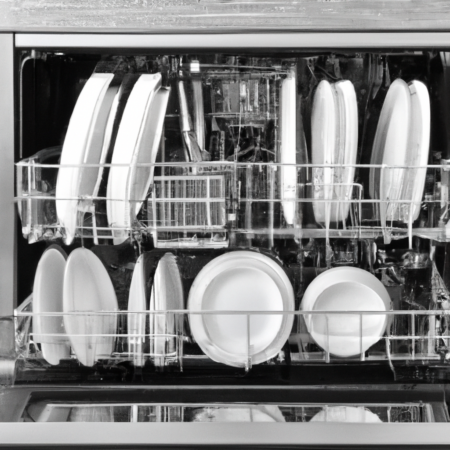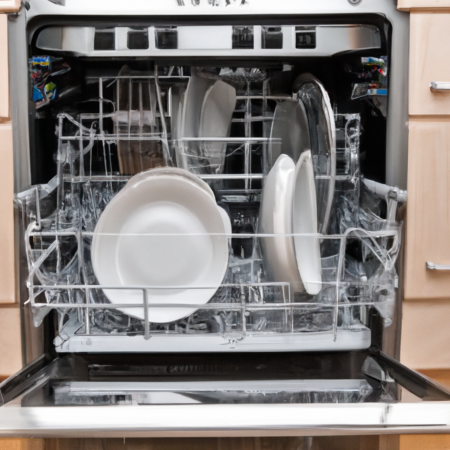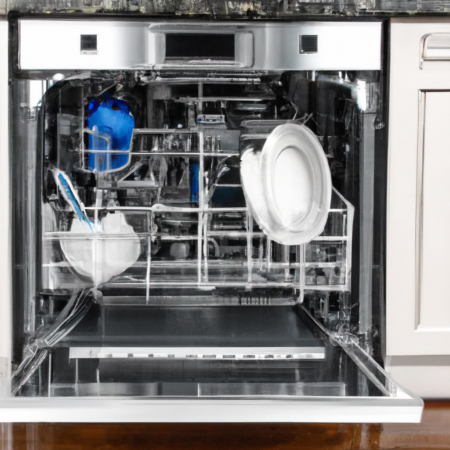So, you find yourself standing in front of your broken dishwasher, wondering if it’s worth the time and money to get it fixed. It’s a tough decision – do you invest in repairs or simply replace the whole appliance? In this article, we’ll weigh the pros and cons, exploring factors such as cost, lifespan, and environmental impact. By the end, you’ll have a clearer understanding of whether fixing your dishwasher is truly worth it or if it’s time to bid farewell to your trusty cleaning companion.
Understanding Dishwasher Repairs
When a dishwasher stops working
It can be frustrating when your dishwasher suddenly stops working. No one wants to be left with piles of dirty dishes to tackle by hand. However, before you panic and consider replacing your dishwasher altogether, it’s important to understand that many common dishwasher problems can be resolved through repairs.
Common dishwasher problems
Dishwashers can develop various issues over time. Some of the most common problems include leaks, poor drainage, failure to start, improper cleaning, and unusual noises during operation. These issues can often be attributed to mechanical or electrical malfunctions, clogged filters, faulty pumps, or worn-out components. By identifying the specific problem, you can determine whether a repair is necessary.
How a dishwasher works
To understand dishwasher repairs better, it’s helpful to have a basic understanding of how a dishwasher works. A dishwasher consists of several key components, including a water inlet valve, heating element, detergent dispenser, spray arm, and drain pump. The water inlet valve allows water to flow into the dishwasher, while the heating element heats the water to the desired temperature. The detergent dispenser releases detergent at the appropriate time, and the spray arm distributes the water and detergent mixture over the dishes. Finally, the drain pump removes water from the dishwasher after the cycle is complete.
Cost of Dishwasher Repairs
Average cost of dishwasher repairs
When considering whether to repair or replace your dishwasher, the cost of repairs is an important factor to consider. On average, dishwasher repairs can range anywhere from $100 to $500, depending on the extent of the problem and the necessary replacement parts. Minor repairs, such as unclogging a drain or replacing a broken latch, are generally more affordable, while major repairs, such as replacing a motor or control panel, can be more costly.
Factors that drive up the cost
Several factors can drive up the cost of dishwasher repairs. One significant factor is the age of your dishwasher. Older models may require more expensive replacement parts, as they may be harder to find or no longer in production. Additionally, the complexity of the problem can influence the cost. Some issues may require specialized skills and expertise, leading to higher labor costs. Finally, the brand and model of your dishwasher can also impact the cost of repairs, as certain brands may have higher-priced replacement parts.
Comparing repair costs vs. replacement
When determining whether to repair or replace your dishwasher, it’s essential to weigh the cost of repairs against the price of a new dishwasher. On average, a new dishwasher can range from $300 to $1500, depending on the brand, features, and energy efficiency. If the cost of repairs exceeds 50% of the price of a new dishwasher, it may be more economical to replace the appliance rather than investing in repairs. However, if the repair costs are significantly lower, repairing your dishwasher can be a cost-effective solution.
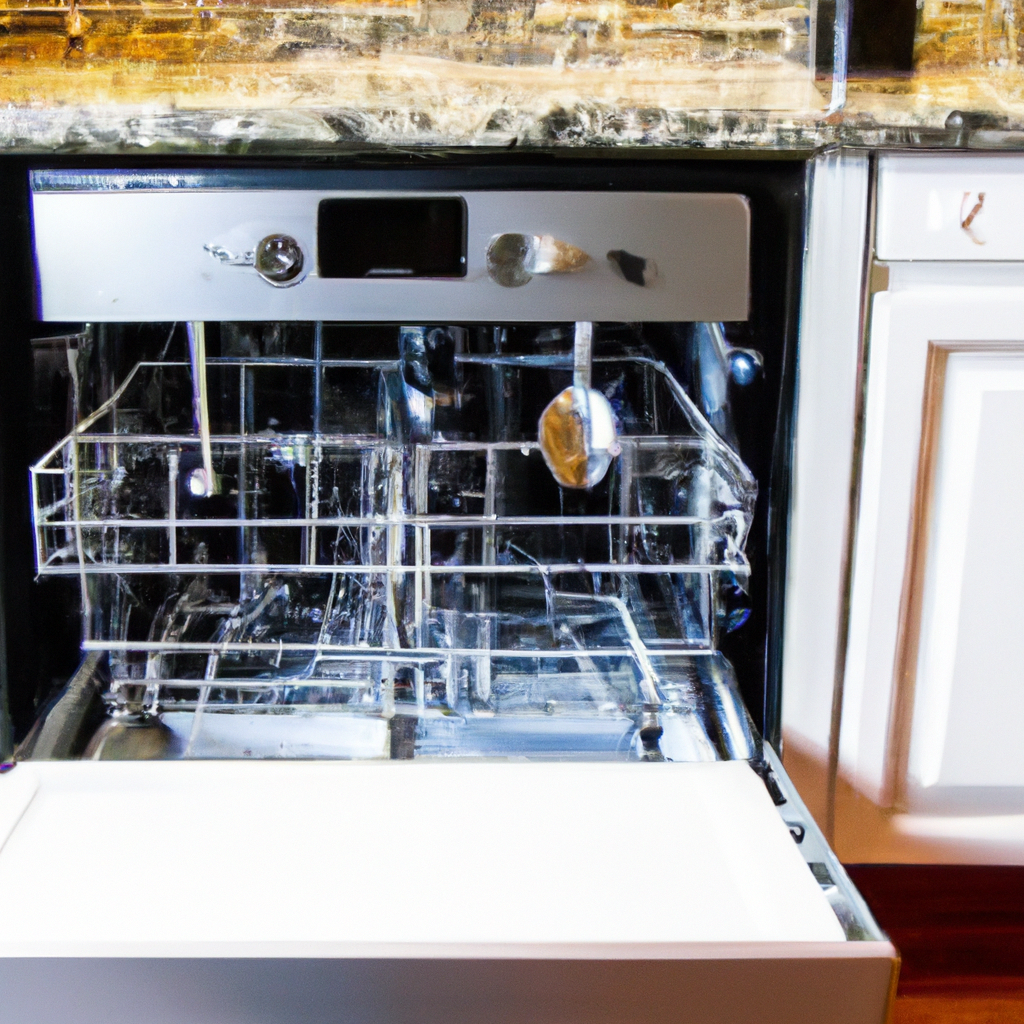
DIY Vs. Professional Dishwasher Repairs
Pros and cons of DIY repairs
If you’re a handy person, you may be tempted to tackle dishwasher repairs yourself. While DIY repairs can save money on labor costs, it’s important to consider the pros and cons before diving in. One advantage of DIY repairs is the potential for immediate fixes without waiting for an appointment. Additionally, DIY repairs allow you to learn new skills and gain a sense of accomplishment. However, there are risks involved, such as potential damage to the dishwasher or personal injury if you’re not familiar with the inner workings of the appliance.
When to call a professional
While DIY repairs can be a viable option for minor issues, there are certain situations when it’s best to call a professional. If the problem is complex or requires specialized knowledge, it’s advisable to leave it to the experts. Professionals have the necessary tools and experience to diagnose and repair the issue correctly, reducing the risk of further damage. Additionally, if your dishwasher is still under warranty, attempting DIY repairs may void the warranty, making professional assistance essential.
Cost comparison between DIY and professional repair
When comparing the cost of DIY repairs versus professional repair services, it’s crucial to consider more than just the price of parts. While you may save money on labor costs with a DIY approach, keep in mind that mistakes or improper repairs can lead to additional expenses down the line. These expenses may include the need for replacement parts or even the cost of a new dishwasher if irreversible damage occurs. Professional repair services offer expertise and often provide warranties on their work, providing peace of mind and potential long-term savings.
Life Expectancy and Performance of a Dishwasher
Average lifespan of a dishwasher
Understanding the life expectancy of a dishwasher is vital when deciding whether to repair or replace it. On average, a dishwasher has a lifespan of approximately 9 to 12 years. However, this can vary depending on factors such as usage, maintenance, and quality. Higher-end models with better build quality and advanced features may last longer, while lower-end models may have a shorter lifespan. By considering the age of your dishwasher and its performance history, you can determine if it’s nearing the end of its useful life.
Signs a dishwasher needs replacement
Certain signs may indicate that your dishwasher is nearing the end of its lifespan and may require replacement rather than repairs. If you find yourself constantly repairing the same issue, it’s a sign that the appliance may be on its last legs. Additionally, if the cost of repairs exceeds the value of the dishwasher or its functional effectiveness is significantly diminished, it may be more cost-effective and practical to invest in a new dishwasher.
How regular maintenance extends dishwasher life
Proper maintenance can significantly extend the life of your dishwasher. Regularly cleaning the dishwasher’s filter, wiping down the interior, and ensuring that no food debris or mineral buildup accumulates can improve its performance and prevent clogs or malfunctions. Additionally, using recommended dishwasher detergent, following loading guidelines, and avoiding overloading can help protect the appliance from unnecessary wear and tear. By performing routine maintenance, you can maximize your dishwasher’s lifespan and avoid premature replacements.
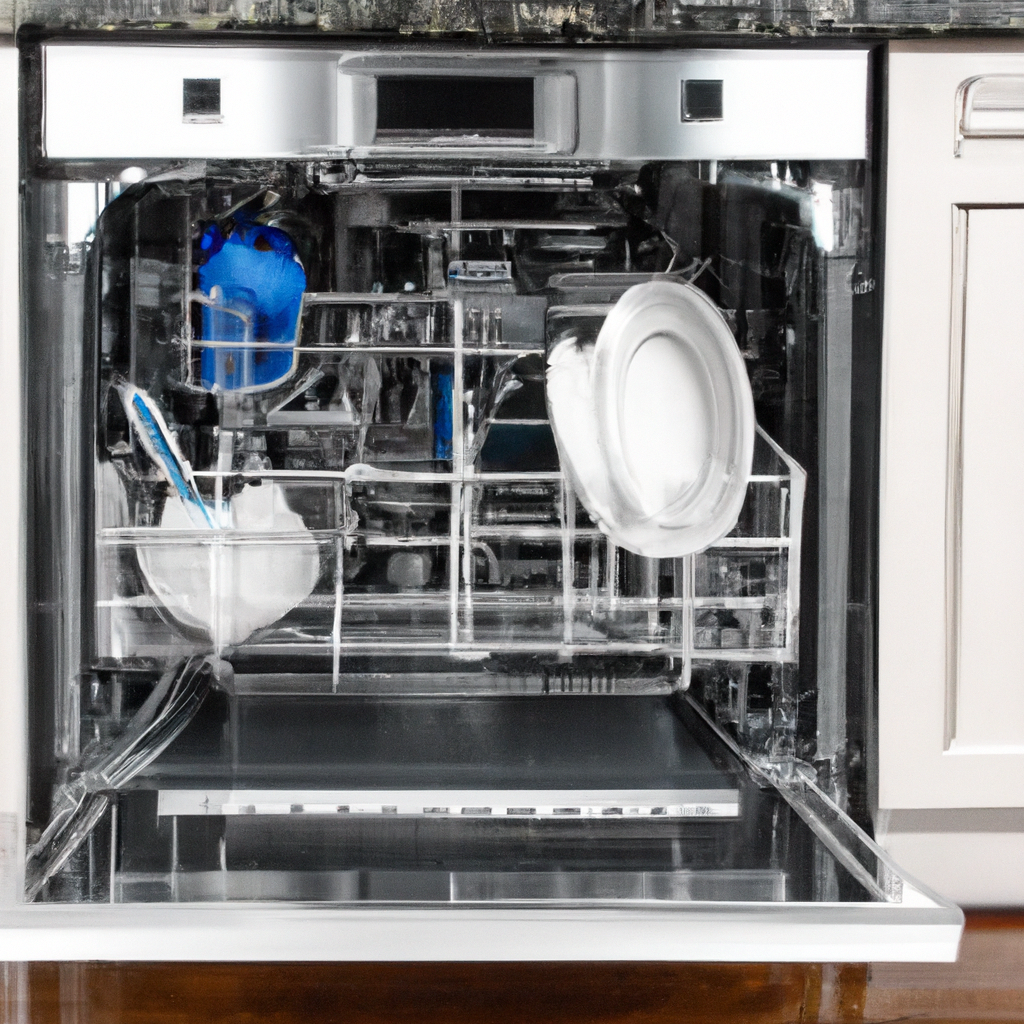
Environmental Impact of Repair Vs. Replacement
E-waste and landfills
The environmental impact of appliances, including dishwashers, should be considered when deciding between repair or replacement. E-waste, which includes discarded electronic appliances, is a growing concern for the environment. By opting for dishwasher repairs, you can help reduce the amount of e-waste that ends up in landfills. Repairing and extending the lifespan of your dishwasher minimizes the need for new appliances and the associated environmental impact of manufacturing, packaging, and disposing of them.
Energy use and emissions from manufacturing new appliances
Manufacturing new appliances, including dishwashers, requires significant energy and resources. From raw material extraction to manufacturing processes, the production of new appliances contributes to carbon emissions and other environmental pollutants. By choosing to repair your dishwasher instead of replacing it, you can reduce the environmental impact associated with manufacturing and transportation. Repairing helps conserve resources and decrease greenhouse gas emissions, making it a more sustainable choice.
Recycling options and their effectiveness
When a dishwasher reaches the end of its useful life and cannot be feasibly repaired any longer, proper recycling options should be explored. Responsible recycling of appliances ensures that valuable materials are recovered and reused, minimizing the environmental impact. Many communities have recycling programs or dedicated facilities for appliance disposal. It’s essential to research local recycling options and choose reputable recyclers who adhere to proper recycling practices. By recycling your old dishwasher, you can contribute to a circular economy and minimize waste.
Economic Impact of Repair Vs. Replacement
Financial implications of the two options
The economic impact of repair versus replacement should be taken into account when making a decision. While repair costs may initially seem more affordable than purchasing a new dishwasher, recurring repairs can add up over time. On the other hand, replacing the dishwasher incurs a higher upfront cost but may provide a longer-term solution without the need for immediate repairs. Considering your budget and the overall financial implications is crucial to making an informed decision.
The impact on the appliance industry
Choosing between repair and replacement has implications not only for your individual circumstances but also for the appliance industry as a whole. If more people opt for repairs, it can contribute to a decrease in demand for new appliances. This shift in consumer behavior can influence manufacturers to prioritize durability, quality, and repairability in their designs, ultimately leading to more sustainable and longer-lasting appliances.
Long-term savings considerations
While the upfront cost of repairing or replacing a dishwasher is important, it’s also essential to consider the long-term savings. A new dishwasher may come with improved energy efficiency features, leading to reduced water and electricity consumption. Over time, these savings on utility bills can offset the initial investment in a new appliance. On the other hand, repairing an older dishwasher without energy-efficient features may result in higher energy costs. Carefully weighing the long-term savings potential is essential for making a financially sound decision.
Technological Advancements in Dishwashers
How modern dishwashers differ from older models
Technological advancements have greatly improved the efficiency, performance, and convenience of modern dishwashers compared to older models. Newer dishwashers often offer enhanced cleaning capabilities, such as multiple washing cycles, adjustable racks, and specialized cleaning zones for heavily soiled dishes. They also come equipped with advanced sensors and smart features that optimize water and energy usage, resulting in more eco-friendly operation overall. These advancements can significantly improve the user experience and provide better cleaning results.
Energy efficiency and water conservation in newer models
Energy efficiency and water conservation are key factors in modern dishwasher designs. Newer models generally have higher Energy Star ratings, indicating their superior energy efficiency compared to older models. These energy-efficient dishwashers use less electricity during operation, leading to reduced energy consumption and cost savings over time. Additionally, they often feature water-saving technologies, such as sensors that adjust water usage based on the load size and soil level. These advancements contribute to reduced water consumption and a smaller environmental footprint.
Smart technology in dishwashers
Smart technology has made its way into various home appliances, including dishwashers. Smart dishwashers offer advanced features such as Wi-Fi connectivity, allowing you to control and monitor your dishwasher remotely via a smartphone app. This technology enables you to start or pause cycles, receive alerts, and even download customized washing programs. Some smart dishwashers even integrate with virtual assistants like Amazon Alexa or Google Assistant, providing hands-free control and making your kitchen experience more convenient and connected.
Quality of Repair and Service Providers
How to choose a reputable repair service
When opting for professional dishwasher repairs, it’s crucial to choose a reputable repair service to ensure a quality and reliable repair. Start by researching local repair companies and reading reviews to gauge their reputation and customer satisfaction. Look for repair services that specialize in dishwasher repairs and have experience working with your specific dishwasher brand. Additionally, consider factors such as their warranty policies, certifications, and responsiveness to customer inquiries. By selecting a reputable repair service, you can have peace of mind knowing that your dishwasher is in capable hands.
Warranty considerations for repair vs. replacement
Another important factor to consider when deciding between repair and replacement is the warranty coverage. If your dishwasher is still under warranty, repairing it may be the most cost-effective option. Be sure to review your warranty terms and conditions to understand what types of repairs are covered and whether using non-certified repair services affects the warranty. On the other hand, if your dishwasher is no longer under warranty, the cost of repairs may be a more significant consideration, potentially tipping the scales towards replacement.
Word-of-mouth and online reviews
In addition to considering the reputation of repair services, word-of-mouth recommendations and online reviews can provide valuable insights. Reach out to friends, family, or neighbors who have recently had dishwasher repairs and inquire about their experiences with specific service providers. Online review platforms, such as Yelp or Google reviews, can also offer a wealth of information on the quality of service, customer satisfaction, and overall reliability of repair companies. By leveraging these resources, you can make an informed decision when selecting a repair service.
Impact on Property Value
How appliance upgrades can increase home value
Kitchen appliances, including dishwashers, play a significant role in the overall value of a property. Upgrading to a new, modern dishwasher can enhance the appeal of your kitchen and potentially increase your home’s value. Prospective homebuyers often prioritize updated appliances when considering a property, as they signify a well-maintained and functional kitchen. By investing in a new dishwasher or ensuring that your existing dishwasher is in excellent condition, you can make your home more attractive to potential buyers and potentially command a higher selling price.
The role of kitchen appliances in real estate evaluations
Real estate evaluations take into account various factors when assessing the value of a property. Kitchen appliances, including dishwashers, are among the features that appraisers consider. An outdated or malfunctioning dishwasher can negatively impact the perceived value of your home. On the other hand, a well-functioning, high-quality dishwasher can contribute positively to the overall impression of your kitchen, potentially leading to a higher appraised value. Ensuring your dishwasher is in good repair and maintaining a cohesive and functional kitchen can positively impact the value of your property.
Considerations for landlords and property investors
For landlords and property investors, the decision whether to repair or replace a dishwasher may depend on factors beyond immediate cost. Rental properties require appliances that can withstand frequent usage and are durable enough to minimize recurring repairs. While replacement may have a higher upfront cost, investing in a new dishwasher with modern features and extended longevity can attract and retain tenants in the long run. Additionally, new appliances often come with warranties, providing financial protection against unexpected breakdowns and repairs.
Conclusion: Is it Worth it to Fix a Dishwasher?
Balancing costs, environmental impact, and convenience
When deciding whether it’s worth it to fix a dishwasher, it’s essential to balance various factors, including costs, environmental impact, and convenience. Consider the cost of repairs versus the price of a new dishwasher, factoring in long-term savings and potential energy efficiency gains. Evaluate the environmental impact of repairing versus replacing and weigh the benefits of reducing e-waste and conserving resources. Finally, consider the convenience of immediate repairs versus the potential advantages and improved performance of upgrading to a new dishwasher.
Making the best decision based on your circumstances
The decision to repair or replace a dishwasher is ultimately subjective and should be based on your individual circumstances. Assess the nature and complexity of the problem, the age and performance history of your dishwasher, and your budgetary constraints. Additionally, consider the long-term implications and potential impact on property value if applicable. By carefully evaluating these factors and taking into account your specific needs and priorities, you can make an informed decision that aligns with your preferences and values.
Potential advantages of upgrading to a new dishwasher
While repair may be a viable option, upgrading to a new dishwasher offers several potential advantages. Newer models often come with energy-efficient features, advanced cleaning capabilities, and smart technology. These advancements can improve the cleaning performance, convenience, and overall user experience. Additionally, a new dishwasher can enhance the aesthetics and value of your kitchen. If the cost of repairs is significant or your current dishwasher is nearing the end of its lifespan, upgrading to a new model may be a worthwhile investment in the long run.





